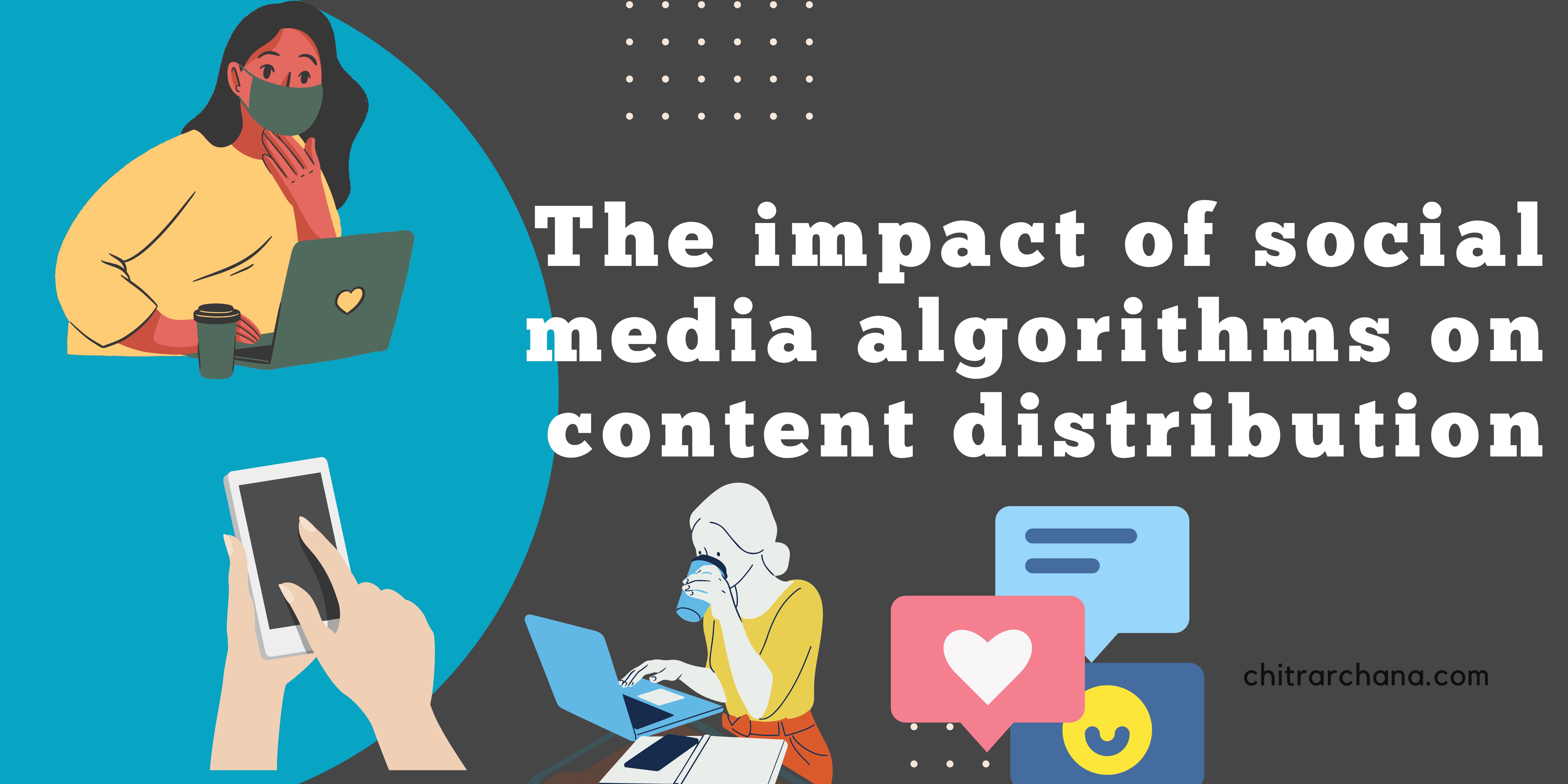
Social media platforms have revolutionized the way we interact with each other and consume information. The introduction of algorithms has significantly changed the way content is distributed on these platforms. In this blog, we will discuss the impact of social media algorithms on content distribution.
Social media algorithms are complex systems that determine what content is shown to users on their feeds. These algorithms take into account a variety of factors, such as a user’s past behavior, interests, engagement, and even the time of day they are most active. The goal of these algorithms is to personalize the user experience and increase engagement on the platform.
One of the most significant impacts of social media algorithms on content distribution is that it can create filter bubbles. A filter bubble is a phenomenon where users are only exposed to content that reinforces their existing beliefs and perspectives. Social media algorithms tend to show users content that they are more likely to engage with, which can create a cycle of confirmation bias. This can be detrimental to the diversity of opinions and perspectives on the platform, which can lead to a lack of critical thinking and understanding of different viewpoints.
Another impact of social media algorithms is that they can prioritize content that generates more engagement, such as likes, comments, and shares. This means that content that is controversial, sensationalist, or emotionally charged is more likely to be shown to users. While this can increase engagement on the platform, it can also lead to the spread of misinformation and harmful content. Additionally, this can create a pressure to produce content that generates engagement, which can lead to a decrease in the quality and authenticity of content.
Furthermore, social media algorithms can also limit the reach of content from smaller accounts and creators. This is because these accounts often have less engagement and fewer followers, making it more difficult for their content to be prioritized by the algorithms. This can make it difficult for smaller accounts to grow and reach a wider audience.
Lastly, social media algorithms can also affect the type of content that is produced on the platform. Creators may be incentivized to produce content that is more likely to generate engagement, even if it is not their preferred style or format. This can lead to a homogenization of content on the platform and limit the diversity of voices and perspectives.
In conclusion, social media algorithms have a significant impact on content distribution on social media platforms. While they aim to personalize the user experience and increase engagement, they can also create filter bubbles, prioritize controversial content, limit the reach of smaller accounts, and affect the type of content produced. It is important for social media companies to consider the ethical implications of their algorithms and strive to create a diverse and authentic online environment.
Certainly! Here are some additional thoughts on the impact of social media algorithms on content distribution:
One of the most concerning aspects of social media algorithms is their potential to perpetuate systemic biases and discrimination. If the algorithms are trained on biased data or have inherent biases, they may disproportionately show certain types of content to certain groups of people. For example, an algorithm that is biased against people of color may show fewer posts from black creators, which can perpetuate stereotypes and reinforce discrimination.
Moreover, social media algorithms can also have economic implications. The algorithms prioritize content that generates more engagement, which can lead to a concentration of wealth and power among a select few influencers and content creators. These individuals may have more opportunities for brand deals and sponsorships, which can create an uneven playing field for smaller creators who may not have the same reach or engagement.
Additionally, social media algorithms can have a significant impact on mental health. The algorithms are designed to keep users engaged on the platform for as long as possible, which can lead to excessive use and addiction. Moreover, the prioritization of sensationalist and emotionally charged content can create a constant stream of negative or anxiety-provoking news, which can have a detrimental effect on mental health.
It’s worth noting that social media algorithms are not inherently bad – they have the potential to connect users with content and communities that they may not have otherwise found. However, it’s important to recognize their impact on content distribution and to hold social media companies accountable for creating a fair and ethical online environment.
As a user, there are steps you can take to mitigate the impact of social media algorithms. For example, you can diversify the types of content you engage with, actively seek out voices and perspectives that are different from your own, and limit your social media use to specific times of day or for specific purposes. By being aware of the impact of social media algorithms and taking control of your social media consumption, you can create a more positive and meaningful online experience.